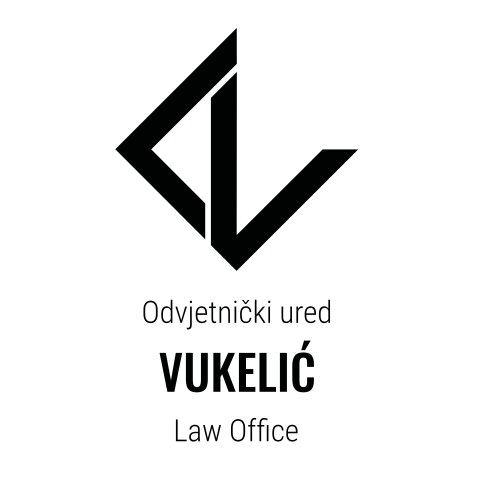Best Employment Benefits & Executive Compensation Lawyers in Croatia
Share your needs with us, get contacted by law firms.
Free. Takes 2 min.
Or refine your search by selecting a city:
List of the best lawyers in Croatia
About Employment Benefits & Executive Compensation Law in Croatia
Employment Benefits & Executive Compensation law in Croatia governs the rights and obligations related to employee benefits and executive remuneration. This area includes various elements such as pension plans, health insurance, stock options, bonuses, and other financial and non-financial benefits provided to employees and executives. Croatian law aims to balance the interests of employers and employees while ensuring fair and equitable treatment for all parties involved.
Why You May Need a Lawyer
Several common scenarios may necessitate legal assistance in the area of Employment Benefits & Executive Compensation:
- Navigating Complex Compensation Packages: Understanding and negotiating your remuneration and benefits, especially when they involve stock options, bonuses, and other incentives.
- Disputes Over Benefits: Resolving conflicts regarding entitlements to certain benefits, severance packages, or bonuses.
- Regulatory Compliance: Ensuring that your compensation plans comply with Croatian laws and regulations, especially for multinational companies operating in Croatia.
- Structuring Executive Compensation: Designing executive compensation packages that align with corporate goals and comply with legal standards.
- Redundancy and Termination: Legal advice during employment termination to secure fair compensation and benefits.
Local Laws Overview
Several key aspects of Croatian law are particularly relevant to Employment Benefits & Executive Compensation:
- Labour Act: This main piece of legislation regulates employment contracts, wages, and working conditions, including benefits and compensation.
- Pension Insurance Act: Governs the pension systems in Croatia and sets the framework for occupational pension benefits.
- Personal Income Tax Act: Determines how various benefits and compensation structures are taxed, affecting net compensation outcomes.
- Mandatory Health Insurance Act: Establishes the obligations for employers and entitlements for employees regarding health benefits.
- Collective Bargaining Agreements: These can set additional standards and obligations over statutory ones, influencing benefits and compensation.
Frequently Asked Questions
What constitutes executive compensation in Croatia?
Executive compensation in Croatia typically includes base salary, bonuses, stock options, pension contributions, and other benefits like company cars and private health insurance.
Are stock options commonly part of compensation packages in Croatia?
Stock options are increasingly popular for aligning executive interests with company performance, but they must be structured according to Croatian tax and securities regulations.
How is severance pay determined in Croatia?
Severance pay is usually based on the duration of employment, with statutory minimums established by the Labour Act being a key component.
What are the tax implications of bonuses in Croatia?
Bonuses are typically subject to personal income tax and social security contributions, impacting the net amount received by employees.
Can employers alter benefit schemes unilaterally?
Generally no; changes in benefit schemes should be agreed upon through mutual consent unless allowed within the terms of the existing agreement or contract.
What role do trade unions play in compensation discussions?
Trade unions may negotiate the terms of employment, including benefits and compensation, through collective bargaining agreements influencing all covered employees.
How are expatriate employee benefits managed in Croatia?
Expatriates may have tailored benefits packages to consider home country entitlements, Croatian regulations, and harmonization of tax liabilities across jurisdictions.
What legislative changes are anticipated in the field of Employment Benefits & Compensation?
While specific changes can vary, ongoing EU harmonization and digitalization trends may lead to adjustments in regulatory compliance requirements and employee rights.
How is parental leave addressed in compensation packages?
Parental leave is protected by law, providing job security and financial support, though employers might offer additional benefits through business policies or union agreements.
Are there differences between public and private sector compensation benefits?
Yes, the structure and extent of benefits can vary significantly between these sectors, due to differences in regulation, funding, and collective bargaining practices.
Additional Resources
For further support and information, the following resources may be helpful:
- Ministry of Labour, Pension System, Family and Social Policy: Provides guidelines and regulatory information.
- Croatian Employment Service: Offers assistance on rights and obligations in employment.
- Croatian Chamber of Economy: Can help with understanding business regulations and practices.
- Professional Legal Associations: Such as bar associations offering directories of legal professionals specialized in employment law.
Next Steps
If you need legal assistance in Employment Benefits & Executive Compensation, consider the following steps:
- Identify Your Needs: Clearly outline the specific areas where you need legal advice or representation.
- Find the Right Lawyer: Look for a lawyer with expertise in Croatian employment law, particularly in compensation and benefits matters.
- Initial Consultation: Arrange a meeting to discuss your situation and understand the legal options available to you.
- Review Engagement Terms: Before hiring a lawyer, ensure you understand their fees, timelines, and what their services will cover.
Lawzana helps you find the best lawyers and law firms in Croatia through a curated and pre-screened list of qualified legal professionals. Our platform offers rankings and detailed profiles of attorneys and law firms, allowing you to compare based on practice areas, including Employment Benefits & Executive Compensation, experience, and client feedback.
Each profile includes a description of the firm's areas of practice, client reviews, team members and partners, year of establishment, spoken languages, office locations, contact information, social media presence, and any published articles or resources. Most firms on our platform speak English and are experienced in both local and international legal matters.
Get a quote from top-rated law firms in Croatia — quickly, securely, and without unnecessary hassle.
Disclaimer:
The information provided on this page is for general informational purposes only and does not constitute legal advice. While we strive to ensure the accuracy and relevance of the content, legal information may change over time, and interpretations of the law can vary. You should always consult with a qualified legal professional for advice specific to your situation.
We disclaim all liability for actions taken or not taken based on the content of this page. If you believe any information is incorrect or outdated, please contact us, and we will review and update it where appropriate.
Browse employment benefits & executive compensation law firms by city in Croatia
Refine your search by selecting a city.

















